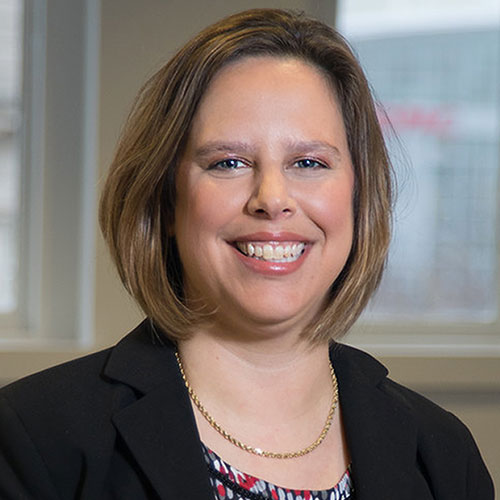Former Executive Vice President at the Center for Responsible Lending

The former Executive Vice President at the Center for Responsible Lending (CRL), Goldstein describes her policy advocacy work in the early 2000s. She highlights the important role states play in addressing evolving predatory lending abuses, which disproportionately harmed borrowers of color and their communities. Goldstein recounts how after joining CRL in 2000, she visited New Jersey, Massachusetts, and other states to share and implement best practices in passing anti-predatory lending legislation. Goldstein characterizes CRL as a policy broker that offered state legislators understandable and reputable predatory lending policy analysis. To pass anti-predatory lending legislation at the state-level, Goldstein emphasizes the importance of building diverse coalitions of community advocates and lenders. She identifies a set of common predatory lending practices — high loan origination fees, prepayment penalties, and subprime credit insurance. She concludes by describing the financial crisis as a result of harmful innovations in the mortgage market, which heightened incentives for brokers to market deceptive products to vulnerable borrowers.
Date Recorded:
June 9, 2020
Interviewed by:
Clare Holtzman
As a former Executive Vice President of the Center for Responsible Lending (CRL), Debbie Goldstein worked to combat predatory lending practices for almost twenty years. After graduating from law school, she joined Self-Help, where she helped develop the initial proposal for CRL, an organization that seeks to ensure access to fair and affordable credit and meaningful consumer protections, especially for marginalized communities. In her time at CRL, Goldstein investigated predatory lending practices and was crucial in the negotiation and drafting of predatory lending reforms in states such as New Jersey and Massachusetts. She has also written extensively about predatory lending practices, including prepayment penalties and the subprime mortgage market in general, as well as strategies for ameliorating the impact of the global financial crisis. She currently serves as the Executive Director of Duke University’s North Carolina Leadership Forum, which brings together civic, business, and political leaders to discuss critical state issues. She holds a B.A. from Brown University and a J.D. from Harvard Law School.